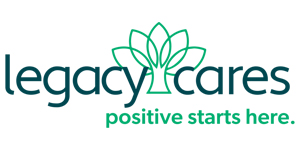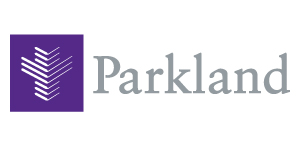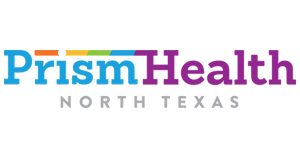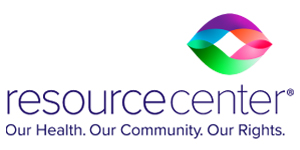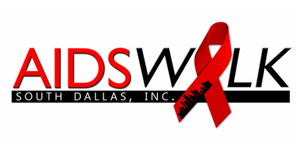LGBTQIA+
HIV and STIs
Dallas County Health and Human Services - 2377 N. Stemmons Freeway, Dallas, TX 75207
Telephone: 214-819-2000

 |  |  |
Dallas County is committed to providing inclusive and comprehensive care for LGBTQIA+ individuals when it comes to HIV (Human Immunodeficiency Virus) and STIs (sexually transmitted infections). HIV is a virus passed primarily through sex or by sharing needles through drug use. HIV weakens your immune system, which makes it hard for your body to fight infection and certain illnesses. Anyone is at risk for HIV, regardless of gender, sexuality, or race. Because the virus can easily pass from person to person regardless of sexual identity, gender, and race, it’s considered an epidemic that affects the overall well-being of our community.
Find Help in Dallas County:
- Click here to link you to our website.
- Put in your zip code.
- Navigate to the top bar to find resources for: mental health, housing, food, support, transportation, work, financial assistance, and legal.
- You can set personal filters, program filters, and income eligibility.
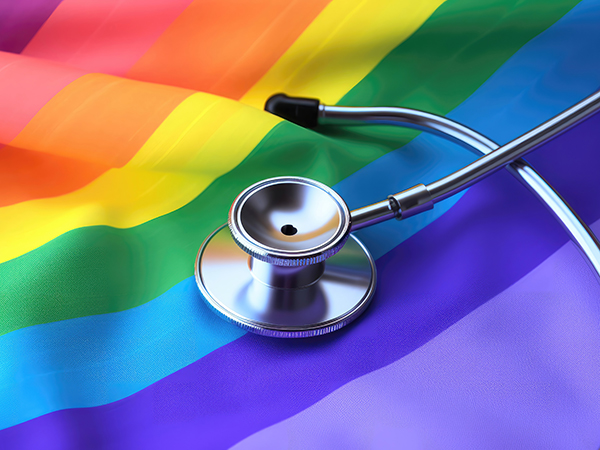 Dallas County Sexual Health Clinic |  Dallas County Ryan White Program | 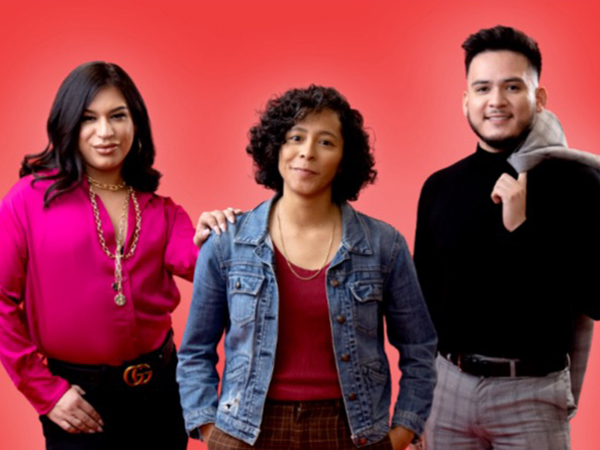 Dallas County Ending the HIV Epidemic |
Dallas County Health and Human Services
Dallas County Sexual Health Clinic
Schedule an appointment with the Dallas County Sexual Health Clinic for:
- Testing for HIV, Syphilis, Gonorrhea, Chlamydia, and Trichomonas.
- Treatment for Syphilis, Gonorrhea, Chlamydia, and Trichomonas.
- Linkage to care for people who are living with HIV.
- PrEP (Pre-Exposure Prophylaxis for HIV): A pill you take every day to protect you from getting HIV from sex.
- Linkage to PEP (Post-Exposure Prophylaxis for HIV): Medication you can start within 72 hours after you have been exposed to HIV, to reduce your chance of getting HIV.
Dallas County Ryan White Program
If you are living with HIV, the Dallas County Ryan White Program may provide you with essential support, including housing assistance, affordable medications, and other vital services to improve your quality of life.
Other Local Resources
Abounding Prosperity
Abounding Prosperity is a nonprofit dedicated to addressing health, social, and economic disparities in the Black community, with a special emphasis on the Black LGBTQIA+ community and their families. They offer HIV screening and testing, MPox vaccinations, rent & utility assistance, mental health counseling, PrEP/PEP access, STD screening & treatment, gender affirming care, educational programs, fitness & wellness programs, counseling & support services, youth drop-in center, and a dance studio.
AIN/AHF (Access and Information Network/AIDS Healthcare Foundation)
AIN works to prevent the spread of HIV and serves persons living with HIV/AIDS and other vulnerable populations. AIN provides services such as: transportation passes, meals, case management, and language translations.
Center for Health Empowerment
CHE is a nonprofit organization with the mission of providing access to high-quality health and wellness services for all. The organization's services are centered around sexual health and HIV/STD prevention. CHE believes in providing care that is welcoming, affirming, and empowering to their participants. Their services include: PrEP, PEP, STI testing & treatment, HIV testing & care, and telehealth services.
Legacy Cares
If you are a person living with HIV, Legacy will provide a next-steps plan tailored just for you. From counseling to housing, Legacy works to provide just-in-time, holistic services that will support your health and independence.
Parkland
As part of the HIV prevention program at Parkland, RAPID HIV testing is provided at the ACCESS Clinic at the Moody Outpatient Center and routine testing is done in the Parkland ER and the Parkland Urgent Care Emergency Center.
No-cost HIV testing is also offered at Moody Outpatient Center every Thursday from 9am – 2pm.
Prism Health North Texas
Prism Health North Texas is committed to providing healthcare for all North Texans in a non-judgmental and affirming environment. The organization strives to remove the barriers that prevent any individual from accessing quality healthcare. They stand for health equity, especially for marginalized populations including people living with HIV, LGBTQIA+, and ethnic minorities. Every individual has the right to affordable, accessible health care and the opportunity to attain their highest level of health.
Whatever your insurance or financial situation is, whether you have no income, low income, or cannot pay, there are programs in place to offer the assistance you need. They also accept all major insurances as well as Medicare and Medicaid.
Resource Center
Resource Center serves the LGBTQIA+ and HIV/AIDS communities, offering many services including: HIV/STI testing/treatment/prevention, primary health care, gender-affirming care, mental health care, and support for people living with HIV.
Resource Center provides access to PrEP Care Services and the opportunity to enroll in Sponsored Health Insurance Coverage.
Abounding Prosperity
Abounding Prosperity offers access to support groups and individual counseling for mental health and wellness needs of the community. Counselors offer culturally competent and affirming counseling services for mental health support.
AIDS Walk South Dallas
AIDS Walk South Dallas is an organization that empowers all persons living with and affected by HIV/AIDS through prevention, advocacy, education, peer support, linkage to care and emergency financial assistance. They have several community groups that by providing a safe and confidential space, and support
Legacy Cares Counseling Center
Legacy Cares provides one on one, group, and family mental health and substance abuse counseling for people living with HIV/AIDS. Mental Health counseling includes: Indvidual therapy, group therapy, HIV-positive women’s groups and Spanish language therapy.
Prism Health North Texas
Prism Health North Texas has access to behavioral health services for the community. The behavioral healthcare team is made up of counselors and specialists in psychiatry who work as part of your medical team. The services include: mental health and substance misuse assessment, individual, group, and walk-in counseling, psychiatric medication evaluation and ongoing medication management, linkage to substance misuse treatment, recovery support services, crisis management, and care coordination.
Resource Center
Resource Center is dedicated to empowering the LGBTQIA+ community and all people living with HIV/AIDS. They have several support groups, that can be a place for everyone. The groups host regular meetings so it’s easy to get connected and stay connected with a social and supportive community.
Sigma surrounding HIV can make it harder for individuals to seek care, support, and understanding. It can take many forms, from negative attitudes to discrimination, and can deeply impact a person’s mental health and well-being. Understanding common stigma scenarios and how they affect people living with HIV is an important step toward reducing stigma in our community.
- Between 2017-2022, the overall prevalence of HIV in Dallas County increased by 13%.
- In 2022, most new HIV diagnoses in Dallas County were among cisgender males aged 25-35, with Black (non-Hispanic) individuals being the most affected.
- Black and Hispanic communities in Dallas County continue to face disproportionately high rates of HIV infection.
- From 2018-2022, syphilis cases in Dallas County surged by 62%, with Black and Hispanic populations being disproportionately affected.
There’s a lot of information when it comes to your sexual health. So naturally, you’ve got questions. But we’ve got answers to help make this easier to understand.
An STI (Sexually Transmitted Infection) is an infection spread primarily through sexual activities, including vaginal, oral, and anal sex, or sometimes through close skin-to-skin contact. Common STIs include Chlamydia, Gonorrhea, Herpes, Hepatitis C, HIV, HPV, and Syphilis. Practicing safe sex and getting regular screenings can help prevent transmission.
Many STIs may have no symptoms, or the signs can be so mild that they go unnoticed. If you do have any of the following symptoms, you should seek care right away, as they may be signs of an STI.
- Unusual discharge from the vagina or penis that may be white or yellow in color
- Unexplained rashes
- Burning sensation when urinating
- Bumps, sores, blisters, or warts on the genital area. In women, this includes the outer and inner lips, vagina, and clitoris. In men, this includes the penis and testicles.
Some STIs can be cured with treatment, while others cannot be completely eliminated, but can be managed with proper care. It’s important to get tested and treated early to help reduce symptoms and avoid complications. Many people with chronic STIs can live healthy lives by following medical advice and treatment plans. Regular screenings and practicing safe sex can also help prevent the spread of STIs.
How can I avoid getting an STI?
- Use condoms. When using them correctly, latex or polyurethane condoms can protect against many STIs.
- Ensure you and your partner get tested. Open communication and regular testing with partners are key to maintaining sexual health.
- Avoid mixing drugs or alcohol with sexual activity, as it can impact decision-making.
- Never share needles as many STIs can be transmitted through blood.
Can I get an STI even though my partner has no symptoms?
Yes, many people who are infected have no symptoms. You and your partner should both get tested regularly to ensure you are maintaining your sexual health.
Should I get tested for an STI?
Anyone who has had vaginal, anal, or oral sex with a new partner should get tested. Everyone who is sexually active should also get tested during check-ups. Pregnant women should also get tested. Visit the DCHHS Sexual Health Clinic to get tested at a low-cost.
Can I get an STI more than once?
Yes, you can get bacterial infections like chlamydia, gonorrhea, and syphilis more than once, even after treatment. To help prevent reinfection, it’s important to ensure that both you and your sexual partners are tested and treated. Regular screenings and open communication with partners are key to maintaining sexual health.
For specific questions regarding HIV, please visit https://endhivdallascounty.org.
QUICK LINKS
LOCATIONS
EMPLOYEES
-
You must be on the network to see these links.






